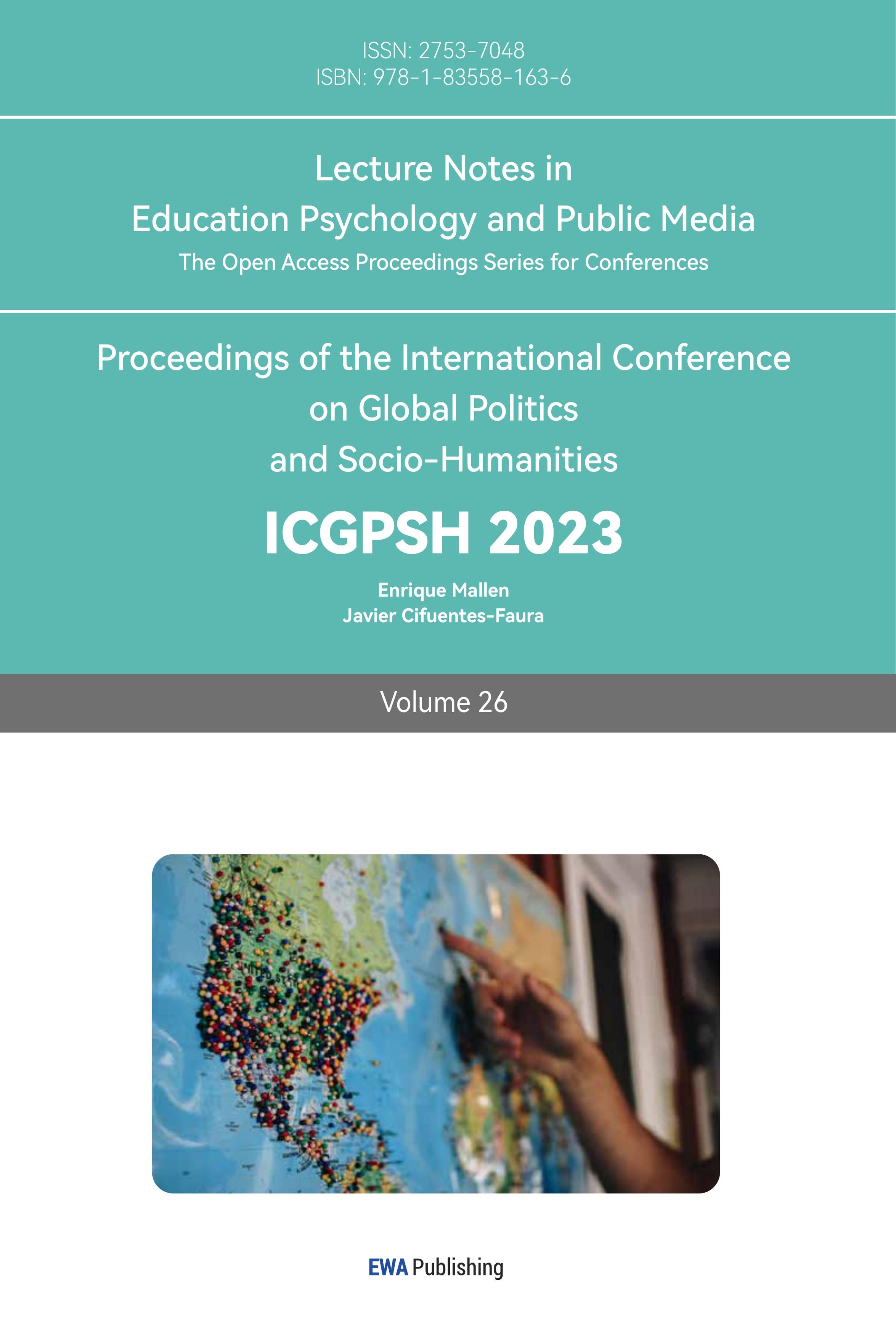References
[1]. Marx/Engels (1845) Die deutsche Ideologie, in: Marx/Engels, Gesamtausgabe, Vol. I/5, 37. MECW 5. 47.
[2]. I. M. Young (2010) Responsibility for Justice. Oxford University Press.
[3]. Amy Allen (2008) Power and the politics of difference: Oppression, empowerment, and transnational justice. Hypatia, 23(3). 156-172.
[4]. Rainer Forst (2007) Radical Justice: On Iris Marion Young’s Critique of the “Distributive Paradigm”. Constellations, 14(2). 260-265.
[5]. I. M. Young (2006) Responsibility and global justice: A social connection model. Social philosophy and policy, 23(1). 102-128.
[6]. Gunther Teubner (2012) Gareth Norbury trans. Constitutional Fragments: Societal Constitutionalism and Globalization, Oxford Constitutional Theory. 52.
[7]. I. M. Young (1990) Justice and the Politics of Difference, Princeton University Press. 37.
[8]. Gunther Teubner (2006) The Anonymous Matrix: Human RightsViolations by’Private’ Transnational Actors. The Modern Law Review. 69(3).
[9]. Karl Marx (1844) ökonomisch-philosophische Manuskripte, MEW. Bd 40. 542.
Cite this article
Qi,Y. (2023). The Differentiation and Self-institutionalization of Social Subsystems: The Theoretical Intent of the Social Connection Model of Responsibility. Lecture Notes in Education Psychology and Public Media,26,143-148.
Data availability
The datasets used and/or analyzed during the current study will be available from the authors upon reasonable request.
Disclaimer/Publisher's Note
The statements, opinions and data contained in all publications are solely those of the individual author(s) and contributor(s) and not of EWA Publishing and/or the editor(s). EWA Publishing and/or the editor(s) disclaim responsibility for any injury to people or property resulting from any ideas, methods, instructions or products referred to in the content.
About volume
Volume title: Proceedings of the International Conference on Global Politics and Socio-Humanities
© 2024 by the author(s). Licensee EWA Publishing, Oxford, UK. This article is an open access article distributed under the terms and
conditions of the Creative Commons Attribution (CC BY) license. Authors who
publish this series agree to the following terms:
1. Authors retain copyright and grant the series right of first publication with the work simultaneously licensed under a Creative Commons
Attribution License that allows others to share the work with an acknowledgment of the work's authorship and initial publication in this
series.
2. Authors are able to enter into separate, additional contractual arrangements for the non-exclusive distribution of the series's published
version of the work (e.g., post it to an institutional repository or publish it in a book), with an acknowledgment of its initial
publication in this series.
3. Authors are permitted and encouraged to post their work online (e.g., in institutional repositories or on their website) prior to and
during the submission process, as it can lead to productive exchanges, as well as earlier and greater citation of published work (See
Open access policy for details).
References
[1]. Marx/Engels (1845) Die deutsche Ideologie, in: Marx/Engels, Gesamtausgabe, Vol. I/5, 37. MECW 5. 47.
[2]. I. M. Young (2010) Responsibility for Justice. Oxford University Press.
[3]. Amy Allen (2008) Power and the politics of difference: Oppression, empowerment, and transnational justice. Hypatia, 23(3). 156-172.
[4]. Rainer Forst (2007) Radical Justice: On Iris Marion Young’s Critique of the “Distributive Paradigm”. Constellations, 14(2). 260-265.
[5]. I. M. Young (2006) Responsibility and global justice: A social connection model. Social philosophy and policy, 23(1). 102-128.
[6]. Gunther Teubner (2012) Gareth Norbury trans. Constitutional Fragments: Societal Constitutionalism and Globalization, Oxford Constitutional Theory. 52.
[7]. I. M. Young (1990) Justice and the Politics of Difference, Princeton University Press. 37.
[8]. Gunther Teubner (2006) The Anonymous Matrix: Human RightsViolations by’Private’ Transnational Actors. The Modern Law Review. 69(3).
[9]. Karl Marx (1844) ökonomisch-philosophische Manuskripte, MEW. Bd 40. 542.









